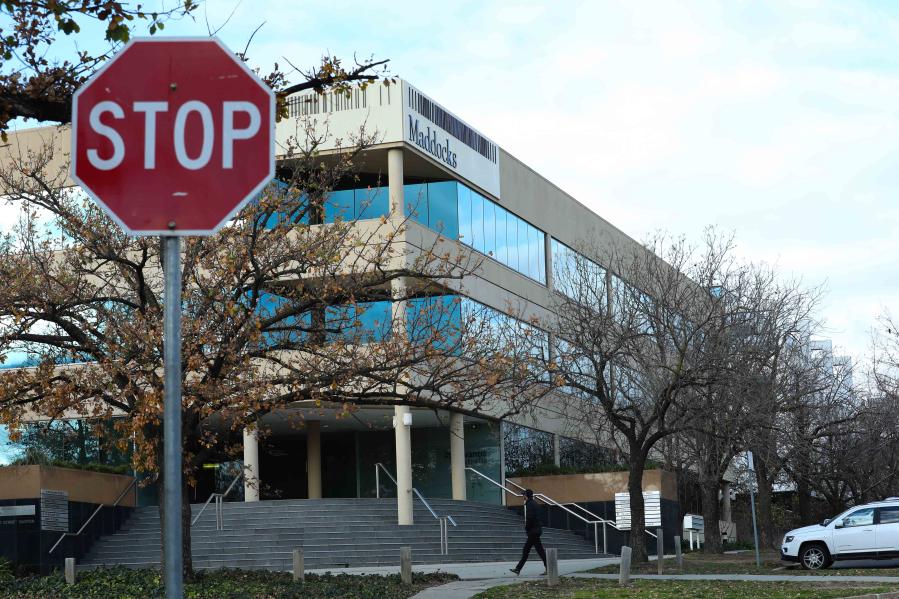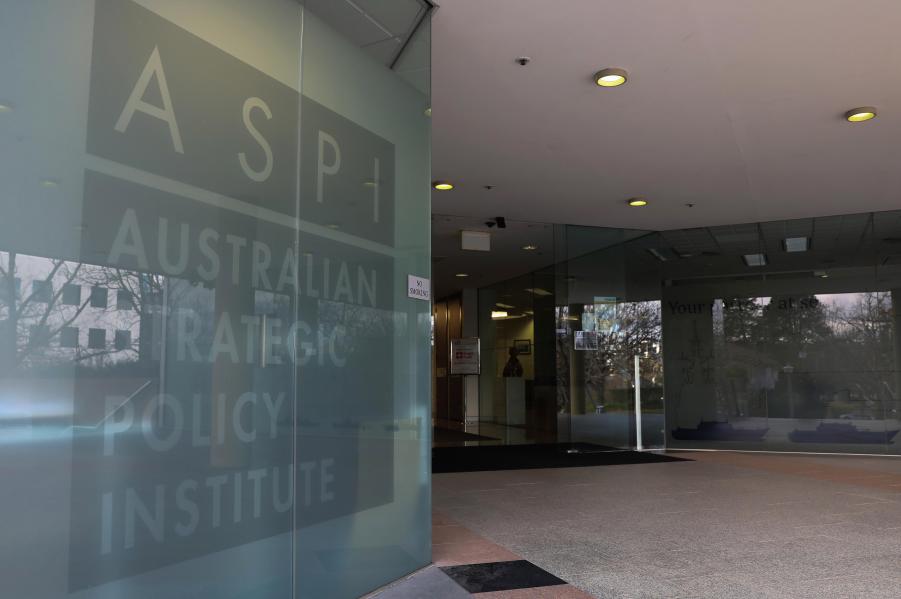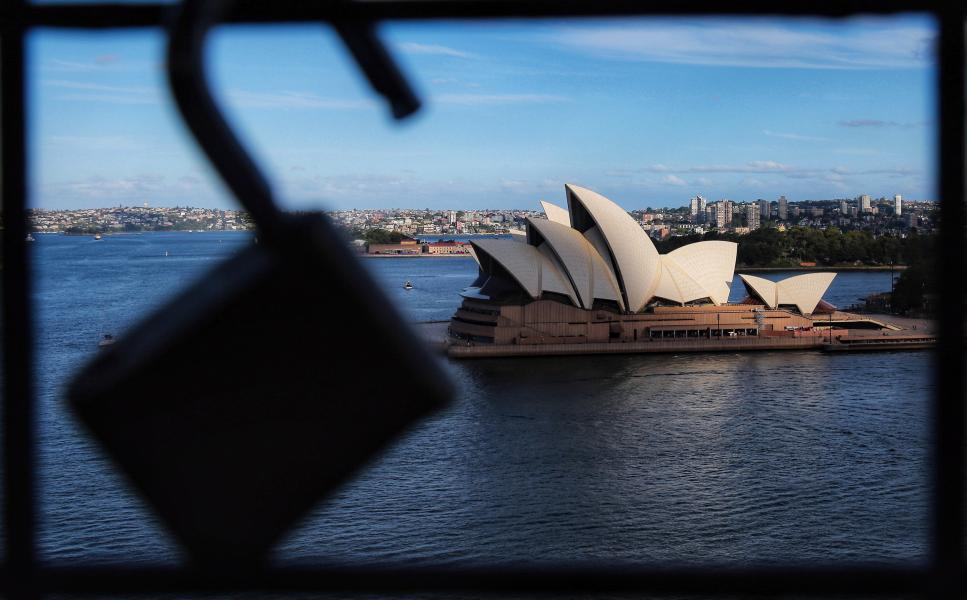
Photo taken on June 23, 2020 shows the office building in which the Australian Strategic Policy Institute is located, in Canberra, Australia. (Xinhua)
- The information and opinions provided by the ASPI's articles either came from some anti-China NGOs or some "eyewitness evidence" that cannot be proved or traced back.
- Australia should see clearly the bright prospect of the bilateral cooperation and meet China halfway to push the bilateral relationship back on track at an early date.
BEIJING, Nov. 9 (Xinhua) -- As anti-China rumors have been sold by some Australian institutions, the way of the wise is to make clear the facts and do not let lies hijack China-Australia relations.
Recently, the Canberra-based Australian Strategic Policy Institute (ASPI) issued a report falsely accusing China of engaging in online interference into other countries' politics.
This is not the first time that the ASPI has issued a China-related report, which is full of fallacies and ideological prejudice. Given the institution's background and its sources of information, these so-called "academic achievements" are nothing but lies to stigmatize China.
Claiming itself as "an independent and non-partisan think tank," the ASPI, in fact, has received long-term funding from foreign governmental agencies and arms industry giants. So it is actually a spokesperson for the anti-China forces behind it.

Photo taken on June 23, 2020 shows the logo of Australian Strategic Policy Institute in an office building, in Canberra, Australia. (Xinhua)
The information and opinions provided by the institute's articles either came from some anti-China NGOs or some "eyewitness evidence" that cannot be proved or traced back. As an article from the Australian Alert Service said, "tracing back ASPI's references reveals that relevant information is ignored, and sources are interpreted in extreme bad faith, or are misrepresented in a manner so misleading it can only be described as academic fraud."
For quite some time, certain Australian institutions and media have fabricated anti-China fable and published false information. But facts gradually come to the surface.
An example is the Four Corners program of the Australian Broadcasting Corporation (ABC). A story named "Power and Influence: The hard edge of China's soft power" falsely claiming that China is posing stronger presence in Australia and trying to influence the country. However, an interviewee of the program Lupin Lu later lodged a defamation action against the program, saying the ABC had set out to "lure" her into doing the interview and the story was recklessly indifferent to the truth. According to media reports, the ABC quietly settled the case in a confidential agreement.
These institutions and media, through stirring up anti-China sentiment, have actually sabotaged mutual trust between China and Australia, poisoned bilateral relations and greatly affected the bilateral cooperation.
As a matter of fact, bilateral trade and cultural cooperation as well as people-to-people exchanges have witnessed fast developments in recent years. China has been Australia's biggest trade partner for 11 years in a row. Over 12,000 Australian companies have set up branches in China.
Moreover, last year, the number of Chinese students in Australia has reached nearly 230,000. China has also been Australia's most important partner in the field of scientific research. Such fast-growing cooperation should be cherished.
Fortunately, an increasing number of insightful experts have shared their objective and rational opinions on China-Australia relations.

Photo taken on Nov. 2, 2020 shows the Sydney Opera House in Sydney, Australia. (Xinhua/Bai Xuefei)
According to a survey of the Australian Institute of Company Directors, a quarter of directors believe that engaging with Asia, and China in particular, should be a key priority for the government.
Australian politicians who have rich diplomatic experience with China such as former Prime Minister Paul Keating, former Foreign Minister Bob Carr and former Ambassador to China Geoff Raby also warned the Australian government of the way it engages with China.
Fruitful results achieved over the 40 years since the establishment of diplomatic relations between China and Australia have demonstrated that the healthy and stable development of the bilateral ties is in the common interest of both countries.
Facing the ongoing COVID-19 challenge, the two countries should also join hands and make concerted efforts to fight against the coronavirus disease and contribute to the post-pandemic economic recovery.
Australia should see clearly the bright prospect of the bilateral cooperation and meet China halfway to push the bilateral relationship back on track at an early date. ■



